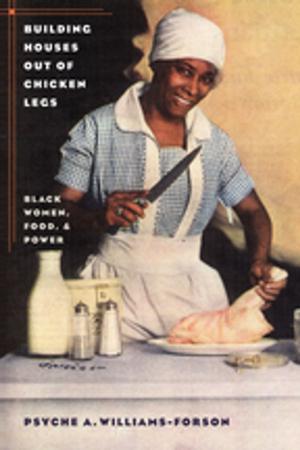Practical Liberators
Union Officers in the Western Theater during the Civil War
Nonfiction, Social & Cultural Studies, Social Science, Discrimination & Race Relations, History, Americas, United States, Civil War Period (1850-1877), Military| Author: | Kristopher A. Teters | ISBN: | 9781469638874 |
| Publisher: | The University of North Carolina Press | Publication: | April 24, 2018 |
| Imprint: | The University of North Carolina Press | Language: | English |
| Author: | Kristopher A. Teters |
| ISBN: | 9781469638874 |
| Publisher: | The University of North Carolina Press |
| Publication: | April 24, 2018 |
| Imprint: | The University of North Carolina Press |
| Language: | English |
During the first fifteen months of the Civil War, the policies and attitudes of Union officers toward emancipation in the western theater were, at best, inconsistent and fraught with internal strains. But after Congress passed the Second Confiscation Act in 1862, army policy became mostly consistent in its support of liberating the slaves in general, in spite of Union army officers' differences of opinion. By 1863 and the final Emancipation Proclamation, the army had transformed into the key force for instituting emancipation in the West. However, Kristopher Teters argues that the guiding principles behind this development in attitudes and policy were a result of military necessity and pragmatic strategies, rather than an effort to enact racial equality.
Through extensive research in the letters and diaries of western Union officers, Teters demonstrates how practical considerations drove both the attitudes and policies of Union officers regarding emancipation. Officers primarily embraced emancipation and the use of black soldiers because they believed both policies would help them win the war and save the Union, but their views on race actually changed very little. In the end, however, despite its practical bent, Teters argues, the Union army was instrumental in bringing freedom to the slaves.
During the first fifteen months of the Civil War, the policies and attitudes of Union officers toward emancipation in the western theater were, at best, inconsistent and fraught with internal strains. But after Congress passed the Second Confiscation Act in 1862, army policy became mostly consistent in its support of liberating the slaves in general, in spite of Union army officers' differences of opinion. By 1863 and the final Emancipation Proclamation, the army had transformed into the key force for instituting emancipation in the West. However, Kristopher Teters argues that the guiding principles behind this development in attitudes and policy were a result of military necessity and pragmatic strategies, rather than an effort to enact racial equality.
Through extensive research in the letters and diaries of western Union officers, Teters demonstrates how practical considerations drove both the attitudes and policies of Union officers regarding emancipation. Officers primarily embraced emancipation and the use of black soldiers because they believed both policies would help them win the war and save the Union, but their views on race actually changed very little. In the end, however, despite its practical bent, Teters argues, the Union army was instrumental in bringing freedom to the slaves.















